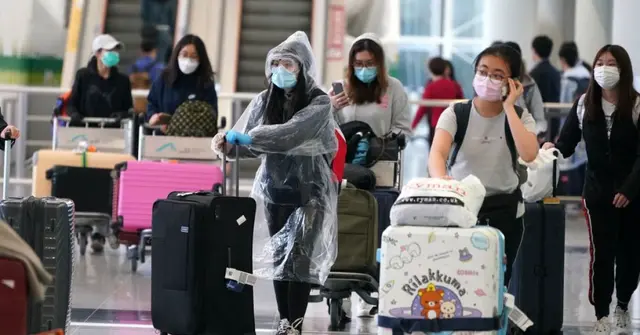By APD writer Alice
After the first wave of coronavirus infections end, with China successfully containing the domestic transmission, Asian countries and territories are facing the second wave of SARS-CoV-2 infections as they have recorded more and more imported cases in recent days.
Singapore on March 18 reported a record number of 47 new cases, of which 33 were imported. The Singaporean Government banned residents from going abroad to avoid more imported cases in the future. Anyone returning home after March 20 must be self-quarantined for two weeks at their place of residence and will be inspected regularly by phone or unannounced visit.
Vietnam has so far recorded 113 COVID-19 cases, about 80 percent of them are imported. Most of them imported cases are overseas Vietnamese students returning home from European countries and the US, and Vietnamese citizens returning from working trips aboard.
To prevent the spread of the pandemic, the Vietnamese Government has taken a wide range of drastic measures, such as suspending entry of all foreigners from March 22, strictly implement concentrated and self-quarantine, closing all entertainment facilities and banning mass gatherings.
Thailand on March 21 reported 89 more cases of COVID-19, bringing the total number of infection cases in this Southeast Asian country to 411 people. This is the highest number of new infections recorded in a day in Thailand.
Thai Ministry of Health spokesman Taweesin Wisanuyothin said the new cases were linked to previous infections from a boxing match, a recreation area and a religious gathering in neighboring Malaysia.
The Thai Ministry of Interior has ordered provincial governors of all border provinces to temporarily close the border from March 22 to control the spread of the disease.
In Hong Kong (China), the confirmed COVID-19 cases doubled in only two weeks. More than 90 percent of the patients came from abroad, mainly overseas students from North America and Europe, where SARS-CoV-2 is raging. Some others are Hong Kong tourists returning home.
Hong Kong is facing new worries about public health due to the influx of Covid-19 cases coming from abroad," said Chui Tak-yi, Under Secretary for Health and Food.
Hong Kong has tightened restrictions on entry from abroad. Anyone who escapes from quarantine will face a 6-month prison sentence or a fine of up to HK $25,000. Lawmakers are calling for tougher measures, even banning all non-citizen entry.
Taiwan and Macau are in the same situation. Local authorities are trying to prevent the possibility of community infections.
On March 16, Macau recorded a South Korean infected with coronavirus after returning from Portugal and became the 11th case of the special zone after 40 days without new cases. Authorities demanded that anyone returning from overseas is quarantined. The number of positive cases subsequently increased rapidly, prompting Macau to ban all returning foreign workers working in the special zone if they were abroad.
Macau has added those from Japan and several European countries to its list of passengers to be quarantined 14 days after entry. The special zone applied this policy on people from Italy, South Korea, and Iran last month.
Taiwan has stopped the entry of all foreigners, except diplomats and some people with commercial visas. Travel groups to foreign countries are also prohibited until the end of April. Repatriated people must be isolated. Public transport is temporarily closed.
Mainland China, where the virus first emerged, confirmed it had no new domestic cases on March 18 for the first time since the outbreak began, a major milestone.
All 41 of the new confirmed cases in China were imported from overseas, the country’s National Health Commission said on March 21, bringing the total number of such cases to 269. There were no locally transmitted cases for the third consecutive day.
Since March 11, when the World Health Organization characterized COVID-19 as a pandemic, the cumulative number of imported cases in China has risen from 85 to 269, up by 216% and outpacing the 98% increase in the cumulative worldwide confirmed cases during the same period,” Mi Feng, spokesman of the National Health Commission, said at a regular press briefing.
The figure is expected to continue rising as more and more students and expatriates return home from the United States and Europe.
Although there is no reported transmission of the virus from people arriving from abroad to local communities, authorities across China are tightening public health measures.
China must strictly prevent the import of the virus from overseas and a rebound in cases, Mi said.
By 5 pm on March 22, more than 308,000 people around the world were infected with the novel coronavirus and over 13,000 of them died.
The World Health Organization (WHO) says the vast majority - 80% - have occurred in Europe and the Western Pacific region, which includes much of Asia.
(ASIA PACIFIC DAILY)
 简体中文
简体中文





